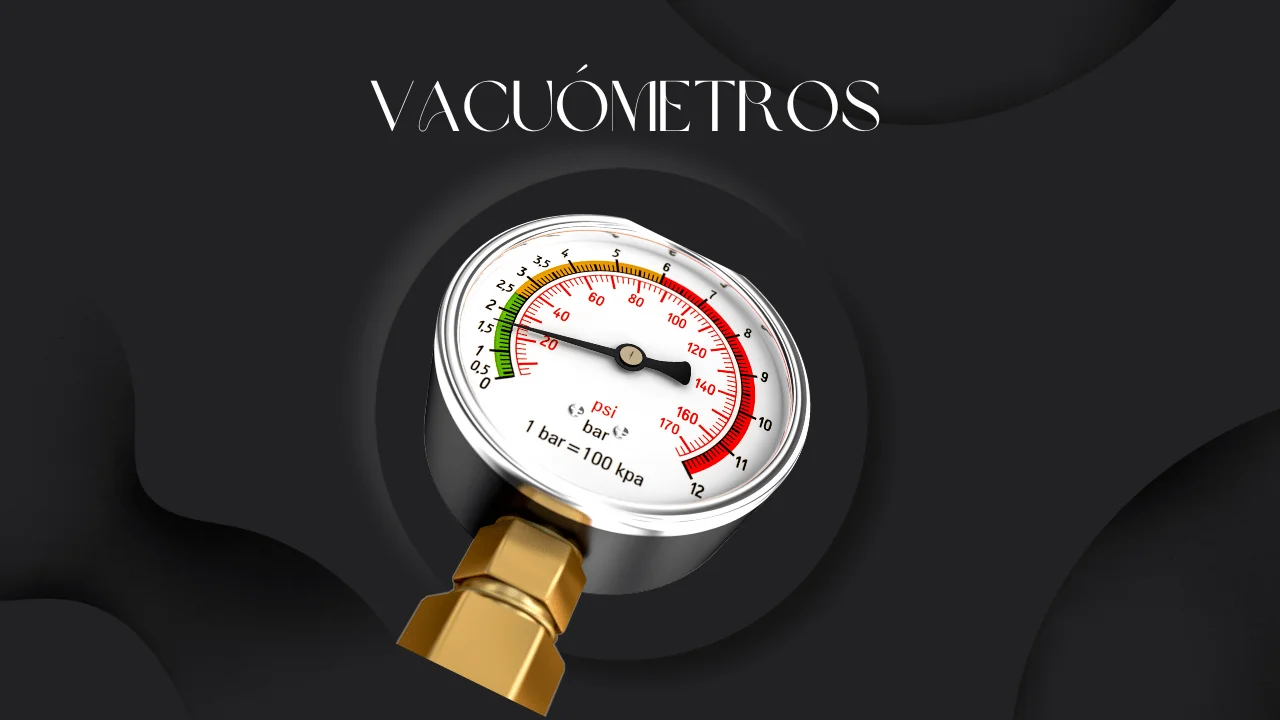In the complex and fascinating world of vacuum technology, the ability to accurately measure and control vacuum pressure is crucial. Vacuómetros, the unsung heroes of this domain, are essential instruments designed for the precise task of gauging pressures lower than atmospheric levels, thus enabling a multitude of industries to optimize their operations. This article delves deep into the intricacies of vacuómetros, shedding light on their operation, types, and indispensable role across various sectors.
What Are Vacuómetros?
Vacuómetros are devices specifically engineered to measure vacuum conditions, i.e., pressures lower than the atmospheric pressure. Their utility spans across detecting leaks in systems, such as engines, which could hamper performance due to compromised gas compression and aspiration processes. The essence of a vacuómetro lies in its ability to measure the drop in pressure within a given environment, making it a cornerstone in industries and research fields where maintaining vacuum conditions is paramount.
Types and Applications of Vacuómetros

Mercury U-tube Manometer
A classic instrument, the mercury U-tube manometer, operates on simple principles to provide accurate readings in torr, offering a direct visualization of pressure differences by measuring the mercury’s displacement. This type of vacuómetro is especially valued for its simplicity and reliability in various vacuum systems.
Bourdon-type Vacuum Gauge
The Bourdon-type vacuómetro utilizes a mechanical approach, where a coiled spring deforms in response to changes in vacuum pressure. This deformation is then translated into a pressure reading. Its mechanical nature ensures durability and a broad application range, from industrial processes to laboratory settings.
Steel Punch Vacuum Meter
In the food industry, ensuring the integrity of vacuum sealing is paramount. The steel punch vacuum meter addresses this need by providing instant measurements of vacuum levels in cans and containers, thereby playing a crucial role in food preservation and safety.
McLeod Gauge for Low Pressure
Renowned for its precision, the McLeod gauge excels in measuring extremely low pressures, making it an invaluable tool in scientific research. Its accuracy is critical for experiments and processes where even minute variations in vacuum conditions can lead to significant differences in outcomes.
Digital Vacuum Gauges
With the advent of digital technology, vacuum gauges have seen a significant transformation. Digital vacuómetros offer the convenience of electronic readings along with features such as data logging and easy calibration. Their versatility and ease of use make them a preferred choice for a wide range of applications, from industrial maintenance to research.
Impact and Importance in Industry
Leak Detection in Engines
Vacuómetros are instrumental in diagnosing and detecting leaks within engine systems, a critical aspect for maintaining optimal performance in automotive and aerospace industries. By identifying gas compression and aspiration issues, these devices help prevent potential failures and ensure efficiency.
Vacuum Sealing
The role of vacuómetros in food safety cannot be overstated. By measuring the vacuum levels in packaging, they ensure that food products are sealed correctly, thus extending shelf life and preventing spoilage.
Semiconductor Manufacturing
The semiconductor industry relies heavily on vacuum processes for the fabrication of electronic components. Vacuómetros ensure that the vacuum conditions are precisely maintained, thereby guaranteeing the quality and reliability of the semiconductors produced.
Vacuum Diagnostics
In automotive maintenance, vacuómetros play a vital role in diagnosing problems related to vacuum systems, such as brake boosters and engine vacuum lines. This diagnostic capability is essential for ensuring vehicle safety and performance.
Advancements
The evolution of vacuómetros from analog to digital formats has significantly enhanced their precision, reliability, and usability. Innovations in sensor technology and digital readouts have made vacuum measurement more accurate and accessible, catering to the growing demands of sophisticated vacuum applications in scientific research, manufacturing, and beyond.
Precision Vacuum Measurement
Calibration of Vacuum Meters
Calibration is a critical process that ensures vacuómetros maintain their accuracy over time. Regular calibration against known standards helps in detecting and correcting deviations, thus guaranteeing the precision necessary for scientific experiments and industrial applications.
Temperature Stability
Temperature fluctuations can significantly affect the accuracy of vacuum measurements. Modern vacuómetros are designed with temperature compensation features to mitigate these effects, ensuring stable and reliable readings under varying environmental conditions.
Vacuum Conditions Monitoring
Continuous monitoring of vacuum conditions is essential in processes where even slight changes can lead to significant impacts. Advanced vacuómetros offer real-time monitoring capabilities, allowing for immediate adjustments and control over the vacuum environment.
Analog vs. Digital Vacuum Meters
While analog vacuómetros have been the standard for decades, digital meters are becoming increasingly popular due to their ease of use, higher precision, and advanced features such as digital outputs and connectivity options for data logging and remote monitoring.
Vacuum Control Systems Integration
Vacuómetros are often integrated into vacuum control systems to provide automated regulation of vacuum pressures. This integration allows for precise control over processes, improving efficiency and outcome consistency in applications ranging from manufacturing to scientific research.
Also Check: Iamnobody89757: A Mysterious Identity
Conclusion
Vacuómetros stand at the intersection of science and industry, a testament to human ingenuity in mastering the invisible forces that shape our world. From the depths of space research to the intricacies of microchip manufacturing, these devices ensure the integrity and success of countless processes that rely on vacuum conditions. As technology advances, the role of vacuómetros will only grow, highlighting their importance in paving the way for future innovations and discoveries.
